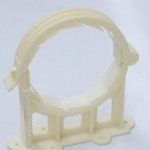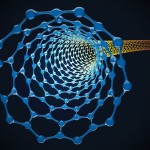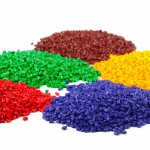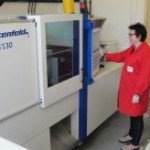When industry and higher education establishments work together, the outcomes can be highly beneficial – and the Exeter Technologies Group, which is comprised of 3 divisions, and based at the University of Exeter, has a track record of successful collaborations.
Thanks to the wide ranging materials and manufacturing expertise within the group, it has had a positive impact on manufacturing and technology businesses and product developers locally, nationally and internationally.
Based within the College of Engineering, Mathematics and Physical Sciences (CEMPS), the group comprises three centres, which can deliver a wide variety of collaborative materials research and development solutions for businesses. These are:
- Exeter Advanced Technologies (X-AT), which focusses on materials research
- The Centre for Additive Layer Manufacturing (CALM), which is extending our understanding of this technology and has helped bring the advantages of Additive Layer Manufacturing (often referred to as 3D printing) to businesses
- The Centre for Alternative Materials and Remanufacturing Technologies (CALMARE), which assists companies with materials development and sustainability issues.
The three divisions interact closely to offer a unique opportunity for research and development. Bringing together material research, process equipment and knowledge and a focus on sustainability leads to an effective combination of skillsets that is delivering advancements in a wide range of projects. These range from increasing the use of recycled material in ALM to the development of new bio-derived composites and new applications and techniques for using carbon nano-tubes.
Exeter Advanced Technologies (X-AT)
The founding centre within the group, X-AT was established in 1998. Its experts carry out both grant funded and commercial contract research, focussing on two main areas:
- Manufacturing (conventional technologies- injection moulding, compounding, extrusion, co-extrusion, composite manufacture, grinding, milling and separation facilities)
- Novel materials and structures (development and characterisation)
Oana Ghita, Deputy Director of X-AT, said: “X-AT is an excellent example of how academia and industry can work well together. Over the years, we have worked on a vast number of different research projects and collaborated successfully with a number of different businesses, from small to large companies looking to develop new materials, structures and process options.”
She added: “Many of the initial projects have led to further research and the continued success of X-AT. The realisation that there is demand from industry for our research encouraged us to set up the other two business technology centres within the group – the Centre for Additive Layer Manufacturing and the Centre for Alternative Materials and Remanufacturing Technologies.”
X-AT has carried out more than 150 contract research projects and partnerships with industry, and its current grant portfolio is approximately £4 million. For details of its previous projects, visit http://emps.exeter.ac.uk/engineering/research/xat/past-projects/
Centre for Additive Layer Manufacturing (CALM)
One of only a few organisations in the world that makes high performing polymeric structures, CALM also boasts the only commercially available high temperature laser sintering platform EOSINT P800. Furthermore, the centre publishes data that is independent from powder suppliers and machine manufacturers.
CALM was established in 2010, as part of £2.6million project, funded by the European Regional Development Fund (ERDF), the University of Exeter and the European Aeronautic Defence and Space Company (EADS / Airbus Group Innovations). It has carried out more than 200 projects for businesses in the South West, and is estimated to have had an impact on the region by helping to grow the GVA (Gross Value Added) by over £6.3 million.
Having completed its ERDF funding requirements, the centre is now operating as a research entity of Exeter Technologies Group and is actively engaging on both grant funded research, while still supporting all sizes of companies with contract research.
James Bradbury, a Business Engagement Specialist for CALM, said: “Since the centre was set up just over three years ago, we are delighted with how the division has grown into a Centre of Excellence and is helping to highlight the potential of this technology to a wider audience.”
He added: “We aim to expand the understanding and use of ALM and, as part of Exeter Technologies Group, we’re researching the microstructure of the materials. This is at the heart of further developments and enables materials and processes to be improved, providing better quality products and also lowering costs through the use of new grades of materials and higher recycling rates.”
For details of past projects, visit http://emps.exeter.ac.uk/engineering/research/calm/case-studies/
Centre for Alternative Materials and Remanufacturing Technologies (CALMARE)
The newest addition to the group, CALMARE supports material development and sustainability projects for SMEs in the South West of the UK. The £1.8million project, funded by the European Regional Development Fund (ERDF); the University of Exeter and industry partners until mid-2015, aims to support the economic growth of the region and develop collaborative relationships focussed on addressing recycling and remanufacture of in-house and end of life manufacturing waste.
CALMARE supports industry with a wide range of projects – or business assists – across areas, including material research and testing and in-house waste management. Business assists can take a number of forms, including individual consultative projects or knowledge exchange workshops, all of which are fully funded for the companies through EU state aid funding.
For details of projects carried out so far, visit http://emps.exeter.ac.uk/engineering/research/calmare/casestudies/
In the long term, the centre plans to research some of the major recycling and remanufacturing issues facing industry, such as how to optimise and then commercialise the re-use/recycling of GFRP (Glass Fibre Reinforced Plastics), and work to improve the use of recycled materials in both traditional techniques, and more novel areas such as within additive layer manufacturing.






